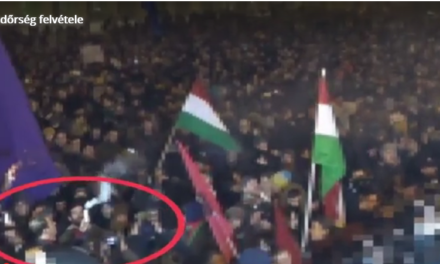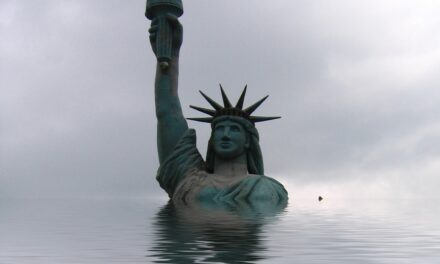The opponents of the political director of the prime minister's doctoral dissertation were constantly put under pressure by self-proclaimed libertarian critics who were actually sectarian. Tamás Dezső Ziegler, associate professor at ELTE's Faculty of Social Sciences and the husband of one of the opponents, expressed a sharp criticism:
Balázs Orbán defended his doctoral thesis after several weeks of active hysteria directed against him and ELTE. My wife, Anna Unger, was one of the opponents.
It was amazing to experience what a vile frenzy there was about the procedure, despite the fact that both the principles and the details were basically in order. They pretended that self-plagiarism in legal/social science dissertations was not a completely common phenomenon: I believe it occurs in at least 50-60 percent of legal dissertations. At one time, the consultants even encouraged him, at least he would have a publication.
Those who are outraged now have kept quiet that some of the vocal sectarian critics are exactly like this, and in fact, Balázsé Orbán has even more takeovers, even from jointly authored articles.
It was set up as if Balázs Orbán had failed because of the metadata; while I also know of a liberal professor whose metadata shows something different than the authorship would suggest - and yet I'm sure he wrote his dissertation. They pretended that it was obvious that the thesis had to be rejected on political grounds, that a scientist had no other choice (academic freedom). Noname journalists suddenly played scientist and explained to the university and real scientists where they think the defense should be held, and that the subject of the defense is humbug. It is as if sovereignty cannot be dealt with in the 21st century (I write this as I do not agree with what Balázs Orbán wrote in many aspects).
"Experts" lied that there had been a change of topic (as if the legal status of representatives was not part of parliamentary law).
They pretended that Balázs Orbán's scientific achievements did not exist (the volume edited by Springeres, articles in well-known Hungarian newspapers, see Jog-Állam-Politika, Közjogi Szemle, Hungarian Yearbook of International Law and European Law, etc.). It's as if the PhD students graduating from CEU, most of whom do not have any publications because it is not a requirement, would be better at anything. The funniest thing was when I was criticized by "scientists" whose science was limited to the spelling of the Moving World. They lied that it's strange if a person defends after such a long time, when it's not strange, it complies with the rules, and it does happen. If someone waits, he can write a more meaningful thesis with more research in a significant number of cases.
In any case, it was clear to me that Balázs Orbán wrote his thesis: I don't think anyone would have been so well-informed if he hadn't written it, and this is also indicated by his well-prepared presentation given at the defense, without papers or notes.
It is clear to me that Hungarian higher education, but also the media, is struggling with the problem of authoritarian liberalism. I say this because I am one of the most active authors who has scientifically investigated the government's relationship to academic freedom and academic freedom in the European Union. Because of these opinions, many people have rubbed their soles against me. At the same time, I think that the cyberbullying that has developed is in no way different from the similar, mindless bullying generated by the authoritarian right, and moreover, it is not the first time that it has occurred "in liberal circles, but a regularly recurring phenomenon".
It amounts to intellectual abuse, as the members of the committee tried to undermine the credibility of the university and the procedure in the name of current politics.
I also think that we can talk about moderate and authoritarian liberalism in the same way as left and right, and this is starting to have a serious international literature (see, for example, the works of Wilkinson or Deneen).
If a trend expects conformity, indiscriminately excludes those who disagree with it, and directs aggression against them, then it is definitely authoritarian.
And in this sense, I agree with Péter Hack: Bolshevikization is justified in connection with defense. Hack is also right that similar hysteria does not take place when liberal colleagues organize defenses among themselves in the academic environment (sometimes in a blatantly sectarian way).
In addition, authoritarian liberalism in higher education can result in boringly homogenous departments and institutes where everyone "looks in the same direction". Where only those who are "connected" to the "friend" system can enter. Where management functions can basically only be performed by sect members. And most importantly, where arguments are absent, because smart people tell you what to think. Even when people write about how problematic this is, the only answer in the context of some mansplaining is that they don't understand, they don't see through.
In any case, I think the arguments of Gábor Polyák, who would have closed the proceedings on ideological grounds, are more honest than the sly pretentiousness of András Rácz and the lawyers and "journalists" of the second category, who do not have a PhD and do not engage in special scientific activities.
There was also a suggestion in which Balázs Orbán was compared to Carl Schmitt, raising the dilemma of who is allowed to obtain a degree. The problem is that "no platforming" has a very serious literature in the academic environment, but at the same time, it is not by chance that serious authors describe how it can backfire, because it makes precisely one of the meanings of science, discourse and debate, impossible, and in most cases it leads to the exclusion of grass, trees and flowers.
Moreover, this is not about canceling a conversation, but something more serious: that we would not allow someone to study, research and cultivate. This goes against the ethos of science.
As a lawyer, I thought the question was also interesting because it is basically illegal, which lawyers also demanded. It is not possible to exclude anyone on political or ideological grounds - writes Tamás Dezső Ziegler, whose full article can be read on the Index .
Cover image source: Facebook/Balázs Orbán













